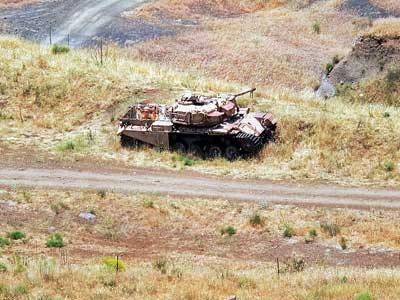"Nanu, guess when the fourth world war will start? No chance dear Veer! The coming world war will leave no one alive, allowing a third sequel to be made."
In fact, the chances of World War III- humanity's favourite game! It's like a bad reboot of a movie franchise: the same plot i.e. power struggle, new special effects i.e. AI drones and cyber attacks, and an even worse cast of characters.
Read in Hindi: क्या इस साल बन रहा है विश्व युद्ध के लिए माहौल…?
Jokes aside, the current topic of discussion among drinking parties is whether the dreaded third world war will finally break out in 2025 or it will be a long wait.
Among the frightening predictions for 2025, the most dangerous is the spectre of the third world war. Many fear that US President Donald Trump may play a key role in it.
Predicting the chances of a world war is complicated. Factors that could potentially trigger large-scale conflict include: growing tensions between major powers such as the US, China and Russia raise the possibility of conflict; territorial disputes, especially in regions such as the South China Sea or Eastern Europe, pose significant risks; existing alliances, such as NATO, can lead to wider conflict if one member state is attacked.
Conversely, informal alliances can also escalate tensions; competition for resources such as water, energy and food can lead to conflict, especially in regions already suffering from instability; increasing cyber attacks and digital warfare can lead to retaliation, which can escalate to military actions; rising terrorist incidents in various countries; raging nationalist sentiments can lead to aggressive foreign policies or military action against perceived threats; economic instability can lead countries to engage in conflict as a means of distraction or to unite the public against a common enemy; unexpected events, such as escalating territorial disputes, military confrontations or assassinations, can rapidly escalate tensions.
While the likelihood of a world war is difficult to measure, the diplomatic efforts of the international community, economic interdependence, and modern communications play a key role in preventing such conflicts.
In January 2025, Asia is facing several geopolitical tensions that could affect regional stability. Key areas of concern include: Growing tensions between China and Taiwan, with increased military activities and assertive rhetoric from both sides. China's military buildup and exercises near Taiwan have raised concerns about a potential conflict. The United States has increased military exchanges with Taiwan, and US military ships have passed through the Taiwan Strait at a higher frequency, further straining relations.
Disputes over territorial claims in the South China Sea continue to cause friction between China, the Philippines, Vietnam, and other Southeast Asian countries. China's construction of military facilities and deployment of counter-stealth radar systems on disputed reefs have increased regional tensions.
Additionally, North Korea's alleged deployment of troops to support Russia in the Ukraine conflict has complicated regional dynamics. President Donald Trump's return to the White House in 2025 has led to uncertainties in US foreign policy. His administration's focus on 'ending wars' and its transactional approach to international relations could impact US involvement in Asian conflicts, particularly those related to China and Taiwan.
On the other hand, North Korea is also taking provocative actions from time to time. Geopolitical tensions are affecting economic stability in Asia. Engineering sectors in countries like China and South Korea have shown signs of weakness, partly due to trade uncertainties associated with US tariff policies. China's economic recovery remains sluggish, raising regional economic concerns.
In addition, the conflict between Ukraine and Russia, and crises in West Asia, including Israel, Palestine, Syria, and Iran, threaten to throw large regions into destructive anger. The Indian subcontinent has also become a new hot spot after the ouster of Sheikh Hasina by right-wing militants, causing turmoil and uncertainty. On the Myanmar border too, scenes of constant conflict are being witnessed between the military junta, Buddhist extremist organizations and the Rohingyas. Right now all regions of the world are plagued with problems and hot spots.
To throw the world into a catastrophic furnace, only one crazy egoistic ruler is needed who can press the trigger of AI-controlled nuclear weapons in all directions. In a few hours, the people of the earth will be seen queuing up at the gates of hell or heaven.
















Related Items
‘The world has not yet learned from the COVID crisis’
World Cinema to converge in Pune with Guru Dutt’s legacy
Why is the World no longer listening to Uncle Donald…!